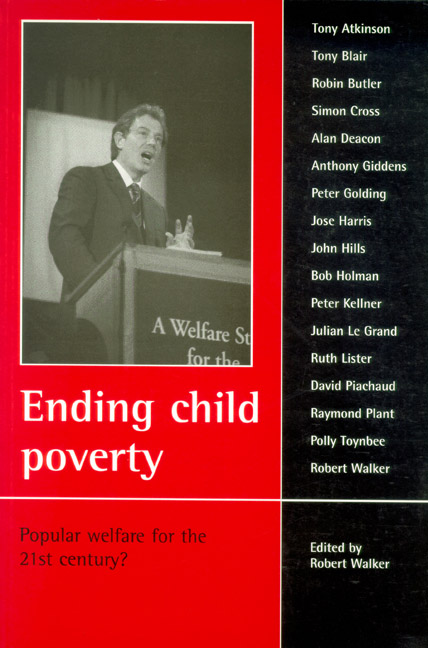9 - Equality of access
Published online by Cambridge University Press: 05 July 2022
Summary
Beveridge, 57 years on
As the Prime Minister has often remarked, British society is vastly different from the 1940s:
• people live longer (therefore have longer in retirement);
• health technology and costs have soared;
• more single parents, broken marriages;
• no longer the case that almost all fathers worked, while almost all mothers stayed at home with their children;
• more private consumption, and ownership of goods (and houses, cars, electrical appliances etc);
• more people face deep-seated, long-term unemployment problems;
• less faith today in government to provide perfect, all-knowing solutions (the war was probably the high point, historically, of faith in central government – after all, it was the government, not the market, that organised victory over Hitler).
The fundamental objectives of welfare policy have not changed – to slay the ‘five giants’ identified by Beveridge – but different strategies are now needed.
Three key (and linked) propositions:
• People should take whatever responsibility they can for their own lives.
• Responsibility can be exercised effectively only within a healthy social and economic framework.
• The role of government is:
◗ to maximise the capacity of people to take responsibility for themselves;
◗ to help create and support a healthy economic and social environment;
◗ to ensure that provision exists to help people surmount obstacles they cannot tackle on their own.
(Note: ‘to ensure that provision exists’ means just that – it does not necessarily mean organising provision directly. Compulsory motor insurance is an example where the law lays down what people must do, but the government then leaves a regulated market to deliver the insurance.)
It could be argued that these principles underpinned Beveridge’s own thinking – and that his report offered a ‘special case’ solution related to the circumstances of his time.
If there is a unifying idea it is that of mutual responsibility. I expanded on this in my pamphlet, The new mutualism (1998). In this context, ‘mutualism’ is not about cooperatives or building societies, but about the basic relationships between citizens, communities, employers and the state.
I summarised my argument in ‘the seven pillars of mutualism’; these could help to underpin a new ‘Beveridge Mark Two’ philosophy of welfare, community and government action.
- Type
- Chapter
- Information
- Ending Child PovertyPopular Welfare for the 21st Century?, pp. 69 - 74Publisher: Bristol University PressPrint publication year: 1999



